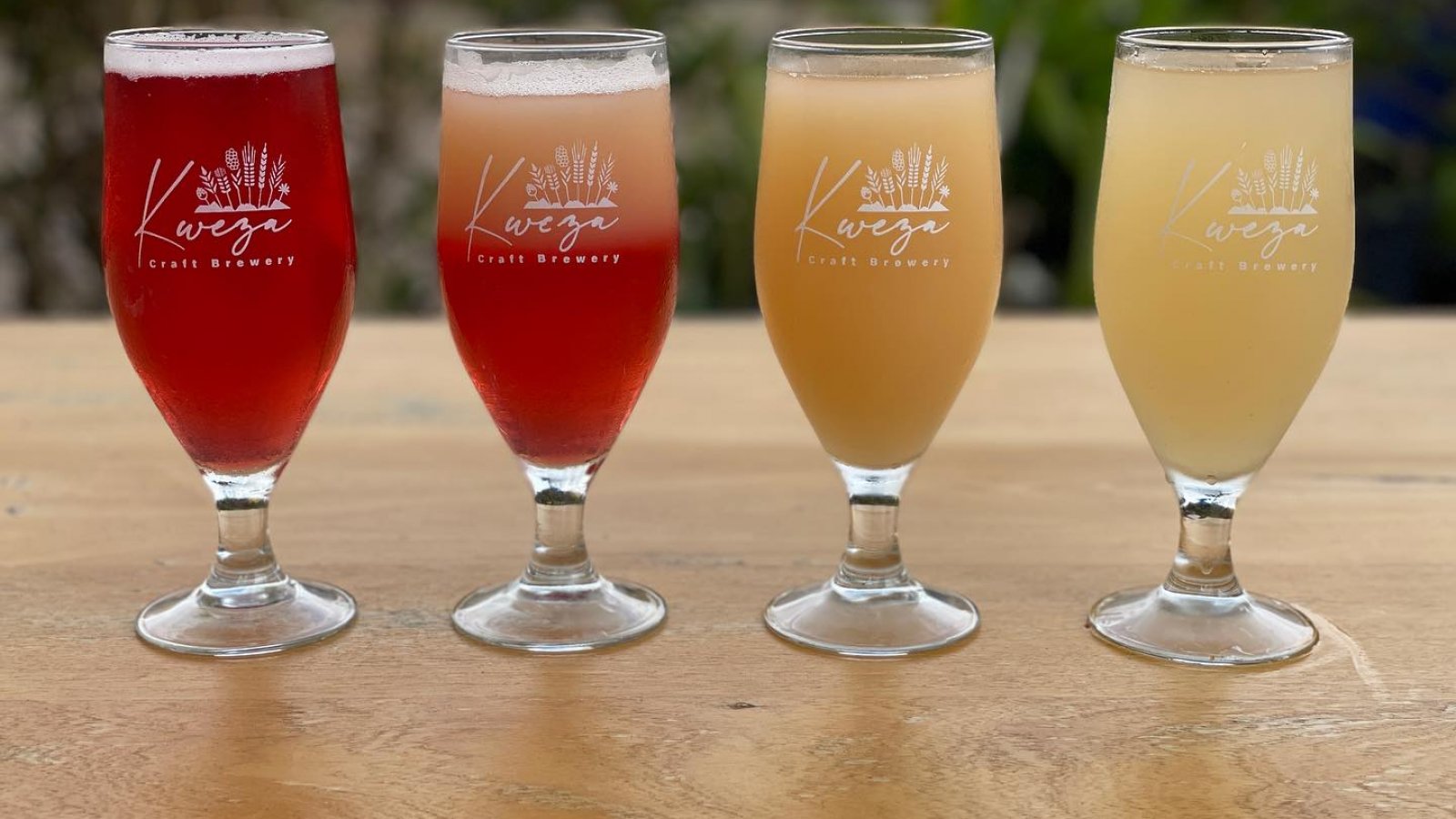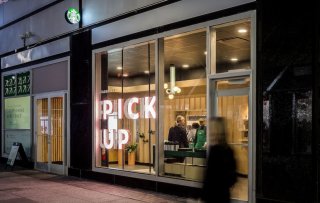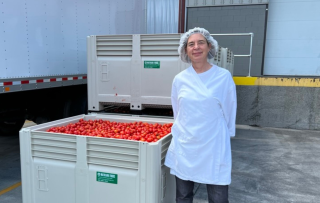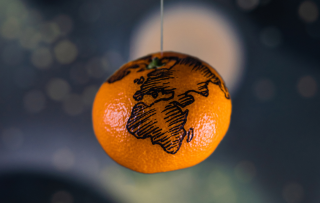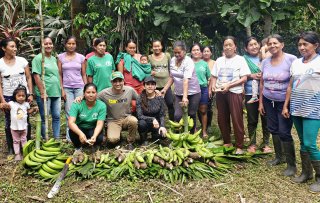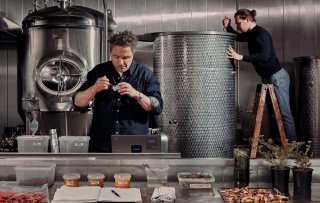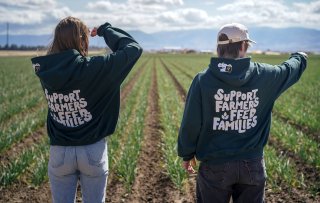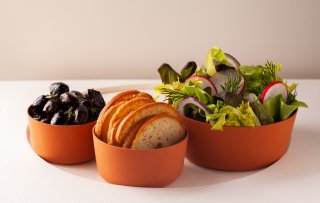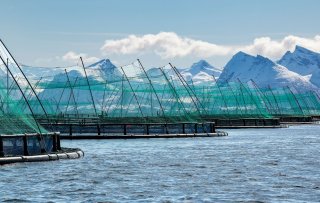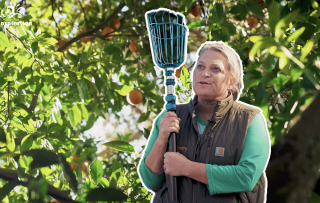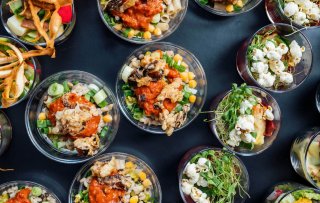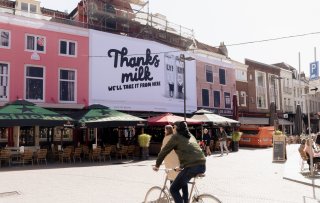Although Canadian beer enthusiast Jessi Flynn came to Central Africa in 2017 as a landscape architect, she quickly adjusted course when she heard about two entrepreneurs who were launching the country’s first craft brewery. After a year of research and development, coupled with the start-up phase during COVID-19, Kweza Brewery is rapidly growing as an enterprise that is female owned and led. Food Inspiration spoke with Flynn, the Co-Founder and Managing Director, about beer and Kweza’s social mission.
In Kinyarwanda, the national language of Rwanda, Kweza means “harvest” and “purity.” According to Flynn and her co-founder Debby Leatt, the name resembles Kweza’s mission to celebrate Rwanda’s rich flora and natural ingredients. Kweza’s beer is primarily made with sorghum, a native crop to Rwanda, instead of barely.
“It's actually such an important crop here that the symbol is in the national crest,” Flynn shares. Furthermore, according to Flynn, it's an important crop culturally – providing for many livelihoods, and it is also an interesting crop from an ecological side. “It doesn't require a lot of input, like chemical fertilizers, and it's also very climate resilient. We actually developed our own malt supply chain. We buy raw sorghum from farmers and work with a partner to malt it ourselves. That's our base grain; it’s the main ingredient for our beer.”
Kweza Brewery
Founded in: The idea for Kweza was formed in 2016 by two international and Rwandan entrepreneurs after a successful first kickstarter. The project officially launched when Jessi Flynn joined the team in 2019
Founded by: Jessi Flynn and Debby Leatt
Located in: Kigali
Main ingredient: sorghum
Number of employees: Four
USP: women-owned, women-led, women-brewed
Key customers: Hotels, bars and guests at the taproom
Types of beer: Kwela Lager, Golden Ale, Sunbird Ginger Beer, Ambrosia Pale Ale, Kweza IPA, Ubuki Honey Amber Ale, Ubuki Honey Amber Ale
Beer with a mission
Although Flynn has a passion for brewing, beer is only the vehicle for a broader mission at Kweza, she tells us. The broader underpinning for Kweza is rounded in its women-owned, women-lead ethos, and that the beer is women-brewed. “Globally, the beer industry is a $555 billion annual industry. Only 3% of that global industry is owned or managed by women and people of color. That's a minuscule amount for a very large industry.”
“Looking at the history of beer brewing, it doesn't make sense”, says Flynn. “Women started brewing beer in Mesopotamia and Egypt, 3500 - 3100 BCE. The origins of beer brewing lies with women, and it's still like that around the world – if we look at home brews. Here in Rwanda, we have many traditional brews made with sorghum that women still brew at home. So what we're trying to do is to let Kweza Brewery tell that story and give credit to whom it deserves.”
Women-owned
When it comes to the business side, Kweza is on a mission to empower women on a financial level. Flynn: “The people who hold the most wealth in the world are white men. What never really occurred to me, until I was the one – a female founder – seeking investment is that white men decide which project is going to go ahead and which isn’t. They're the ones with the wealth to invest. As a white woman I was 0-1 behind. People invest in people like themselves. That's what humans do.”
“I wanted to diversify the investor-space in Rwanda. That’s why we wanted Kweza to be owned by women of color. We took multiple smaller investments, mostly from women – including a lot of mothers. The reason behind that is so when our brewery is successful, the people that invested in it will improve their livelihoods and that of their families. This way we’re diversifying the investor-table.”
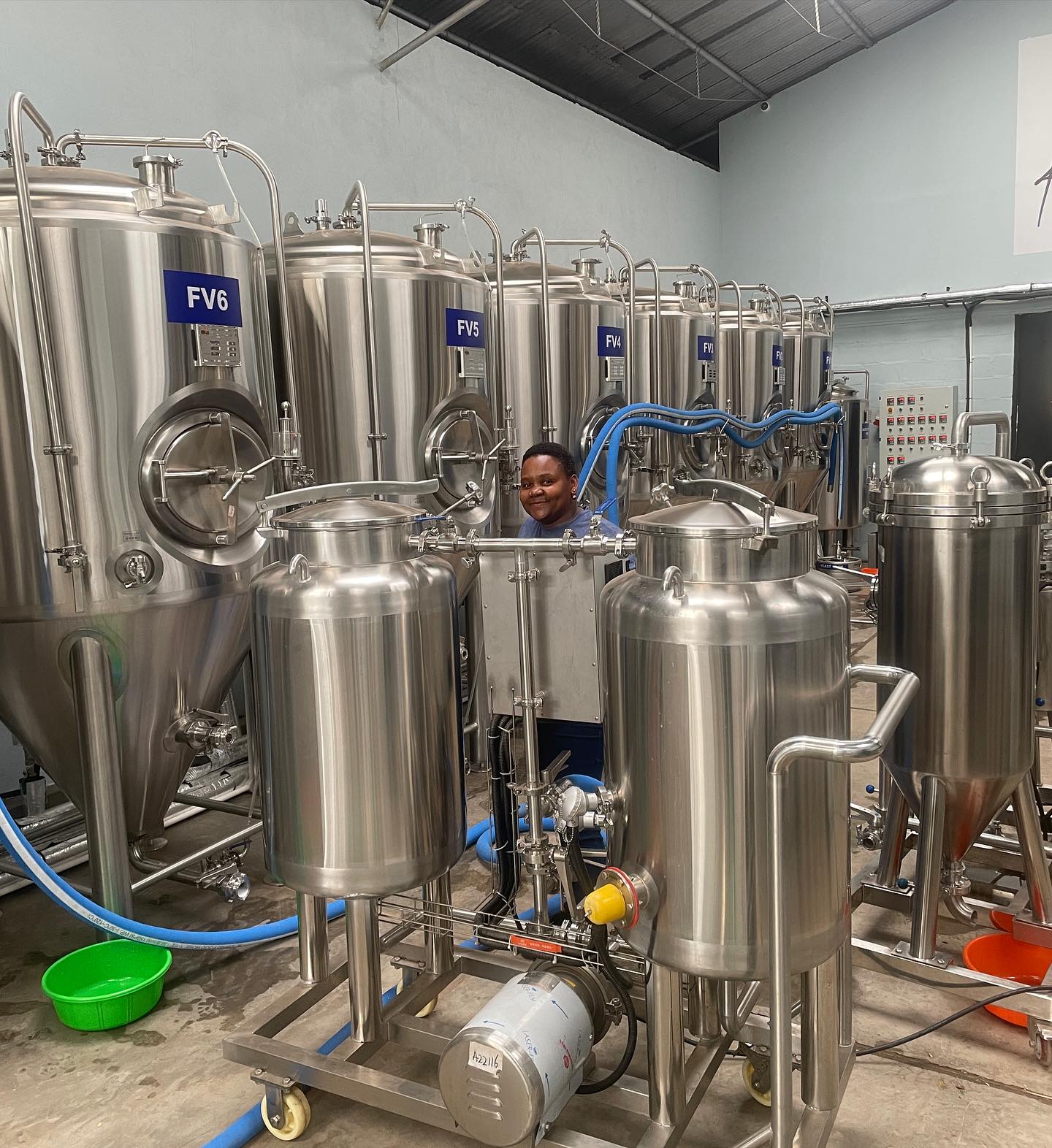
Challenges
Back in 2020, Flynn was brewing on a small 50-liter braumeister. “We were producing beers for an international hotel and a couple of restaurants in Kigali, just 50 liters at a time.” Brewing with sorghum – according to Flynn – is very different from brewing with barley. “We learned a lot about brewing on that small-scale system, which enabled us to custom build our new brewery.” Kweza now has a 1000-liter brew tank. “We make seven beers that form our core assortment. And then our brewers try something new every two weeks. Today we work with three full-time brewers, including myself.”
Another challenge was setting up and equipping customers with the right tap systems. “In Europe and North America, if you build a bar, you automatically build taps, so you can sell draft beer. In Rwanda, nobody sells draft beer. The only draft that’s widely available is Heineken, a brand that brings in its own tap system and is very self-contained. Because we only sell kegs, we import the equipment, set it up for our clients and train them on how to use it. If something happens with a keg, at 02:00 AM on a Saturday morning, we get the call. That’s why we can only take on a couple of new clients every week, because there's so much installation, staff training and maintenance that goes along with selling the beer. We currently have a waiting list with 65 potential clients that want to serve and sell our beer.
From lager to IPA
According to Flynn, there are challenges and opportunities in being the first craft brewery in Rwanda. “For example, there were no government regulations with regard to craft breweries. At first, we were held to the same inspection standards as industrial brewers, which we couldn't possibly meet. But we met with government officials and provided them with the standards from other countries that they could use as precedents. It doesn't move fast here, but it moves steadily.”
“When we got started, I actually met with a lot of craft breweries in South Africa, where there are the most breweries of any country in Africa so far. These brewers told us: ‘Being the first in your country, know that you are paving the way for a lot of people behind you. Be thoughtful and be thorough about the precedent you set.’ The upside of being the first is that Rwandan consumers move very fast. The only beer available here was industrial lager, whereas in the U.S., there are so many craft breweries and so many craft beers on the market that it takes a long time for a new beer brand to really take off. Rwandans will go from our regular lager to our IPA in no time, and love trying new things.”
Flynn is now at the stage where Kweza Brewery has established its primary beer styles. “We have seven styles that we pretty much always make, and now we're able to try to make more new styles.”
Kweza brewery currently offers seven beer styles, including:
-
Kwela Lager
Refreshing all day beer with a delicate balance of sorghum and barley malts and hops.
-
Golden Ale
Light Golden Straw in color. Crisp and refreshing with low bitterness.
-
Sunbird Ginger Beer
Soft aroma of lemon sweetness. Light, sparkling, delightfully refreshing, with a warm ginger aftertaste
-
Ambrosia Pale Ale
Enticing grapefruit aroma. Medium mouthfeel with a touch of honey sweetness. Slow hop bitterness develops on the back palate.
-
Kweza IPA
Passion fruit, citrus and pine compete for dominance on the nose. A light to medium bodied mouthfeel set the stage for a voyage of discovery of the seven hop varieties from around the world that deliver a punch of bitterness for the after palate.
-
Ubuki Honey Amber Ale
This pale-amber ale has a subtle floral honey aroma (honey sustainably sourced from the Akagera buffer zone), and hints of citrus. A bold, full mouthfeel, slightly sweet with a mellow bitter finish.
-
Silverback Oatmeal Stout
Dark chocolate aroma. Flavour notes: combination of roasted coffee dryness & chocolate leading to a bitter finish
“What's interesting to see is that our clients don’t necessarily play it safe. We thought that they would just want our minimum two tap dispensing unit and they would order only the highest selling styles. But that hasn’t been the case at all. They're like: ‘what you offer is even a little too normal.’ We now get questions like: ‘Can you come up with a beer that is something completely different?’ People love the fact that the ingredients are locally sourced, the beer is locally produced and that it's made with an ingredient that they're familiar with. It’s really nice to be in a place where we co-create this brewery with all of our customers.”
 Written by
Written by 